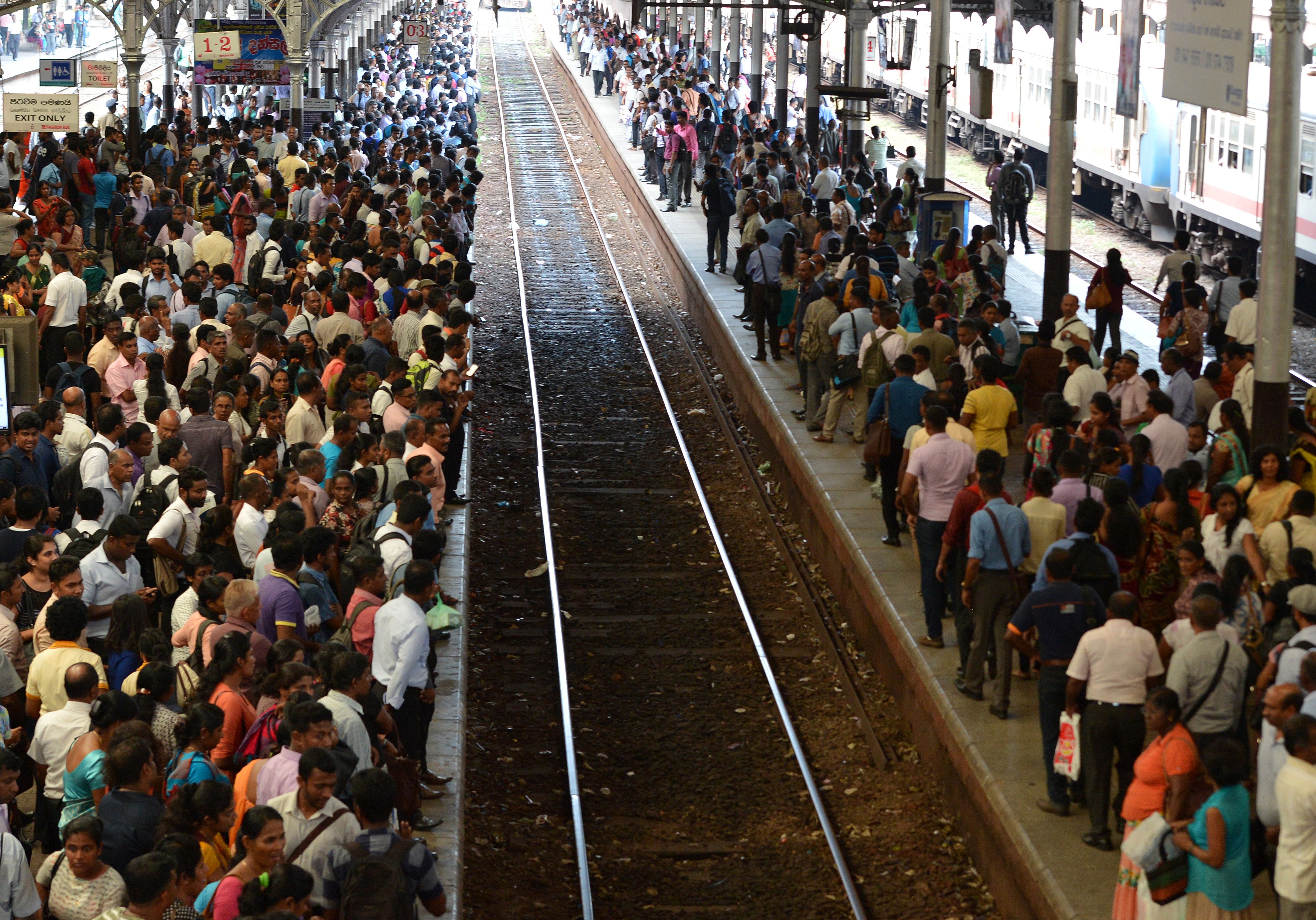Image: Railway Strike in Sri Lanka (live.firstnews.co.uk)
In a hand delivered letter to PM Wikremesinghe today, Anton Marcus, Joint Secretary of the Free Trade Zones and General Services Employees’ Union says that “using the Essential Public Services Act in declaring the railway as essential, violates both the responsibility and duty of the government in implementing the ILO Core Conventions as ruled by the ILO Committee of Experts on Application of Conventions and Recommendations (CEACR) in relation to previous misuse of this Act and also the guarantee given by your government to honour Core ILO Conventions in regaining EU GSP Plus”.
He requests the PM to intervene in
1. withdrawing the gazette notice declaring the railway service as essential
2. negotiating with the railway unions that lead the railway strike
3. taking necessary steps to establish an independent mechanism for resolving of public sector trade union disputes
4. making a public pledge to refrain from using the Essential Public Services Act No. 61 of 1979 other than as ruled by the CEACR.
Full text of the letter follows:
Hon. Prime Minister
Ranil Wickramasinghe
Prime Minister’s Office
No.58, Sir Ernest De Silva Mawatha
Colombo 07.
Dear Mr. Prime Minister,
Protest against using Essential Public Services Act No.61 of 1979 against lawful work stoppage.
We as a trade union and also as a member of the Monitoring Committee of the EU GSP “Plus” wish to register our strongest displeasure and protest over your government’s use of the Essential Public Services Act No. 61 of 1979 in breaking up the on-going railway strike by declaring it illegal.
The two trade unions that lead the railway strike, the Station Masters’ and the Locomotive Drivers’ unions, claim they have not been given any opportunity to discuss their grievances and salary issues, despite efforts made to sort them out through discussions. We are also aware, they had engaged in discussions at high level during the weekend, but that unfortunately had been an unofficial attempt, when it should have been official, in negotiating a reasonable solution.
While the Rajapaksa rule used Court rulings, police repression and thugs against protests and agitations, we see your government’s new repressive trend in using this ‘Essential Public Services Act’ against legitimate workers’ strikes. It was previously used by your government along with thugs, against striking Petroleum workers in July this year. This for a government that promised good governance and strengthening of democracy, is a total betrayal of public trust.
Using the Essential Public Services Act in declaring the railway as essential, violates both the responsibility and duty of the government in implementing the ILO Core Conventions as ruled by the ILO Committee of Experts on Application of Conventions and Recommendations (CEACR) in relation to previous misuse of this Act and also the guarantee given by your government to honour Core ILO Conventions in regaining EU GSP “Plus”.
The CEACR ruled the term “essential services” does not mean services that cater to social needs in a very broad sense. The CEACR defined “essential services” as, [quote] those the interruption of which would “endanger the life, personal safety or health” of the whole or part of the population and unlikely to include services such as broadcasting services. [unquote]. While the railway strike inconveniences the public in many ways and disrupts the normal daily life of commuters, it cannot be said or interpreted as one that “endanger the life, personal safety or health” of the whole or part of the population.
Therefore no effort in getting even parliamentary approval for the gazette notification that declares the railway strike illegal, can justify continued misuse of this Essential Public Services Act in repressing the rights of workers.
We also wish to stress the importance of establishing an independent dispute resolving mechanism for the public sector, a benefit presently enjoyed by the private sector with the Industrial Dispute Act. The Public Administration Department and the Public Service Commission (PSC) are only mandated to inquire and resolve individual employee issues and disciplinary matters. For the public sector employees, there is no conciliatory mechanism their trade unions can resort to when collective bargaining fails with the minister taking the final decision. If there was such a mechanism, the railway trade unions would have had to submit their demands for negotiations with the mandated authority before taking a strike decision.
It is therefore important and necessary for the government to take measures that could prevent work stoppages than resorting to unnecessary repressive steps that can hinder other benefits to the whole country as well, from EU GSP “Plus”.
We therefore request you to immediately intervene in,
1. withdrawing the gazette notice declaring the railway service as essential
2. negotiating with the railway unions that lead the railway strike
3. taking necessary steps to establish an independent mechanism for resolving of public sector trade union disputes
4. making a public pledge to refrain from using the Essential Public Services Act No. 61 of 1979 other than as ruled by the CEACR.
Let us also stress that the responsibility and the duty of an elected government is to resolve disputes through negotiations however difficult that may be and not to repress and crush worker rights, using laws and regulations that contravene and contradicts the responsibility of safeguarding democracy and rights of workers.
Thank you,
Yours sincerely,
Anton Marcus
Joint Secretary
Free Trade Zones and General Services Employees’ Union
C.c
1. Minister for Transport and Civil Aviation
2. Minister for Labour & TU Relations and Sabaragamuwa Development
3. Secretary, EU GSP “Plus” Monitoring Committee
4. Members of the National Labour Advisory Council (NLAC)
